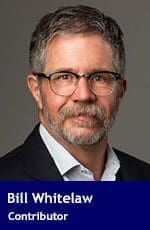 Capital intensely dislikes political risk. It will do almost anything to avoid it.
Capital intensely dislikes political risk. It will do almost anything to avoid it.
As we march into the new economic era that dawned in Alberta on Jan. 1 – the day our carbon levy started – it’s worth pondering how it will shape internal and external views of Alberta as a place to park dollars and watch them grow.
If you believe the headlines, the dollars are avoiding Alberta like the plague. But if you believe the politicians, the money will flood in. The reality is somewhere in the middle.
For most of us, the sun rose on Jan. 1. We shook the prior night’s revelries from our heads and pondered our resolutions. Here’s betting that getting to know more about carbon and climate didn’t top the list – but those topics, and the the levy, are important.
It’s a safe to suggest most people with dollars to spend wonder if the returns Alberta has generated in the past will be there in the future, because from the outside, we look like a jurisdiction divided.
But we all know that there’s more investment opportunity here than you can shake a stick at.
The external perception may have much to with the way we have put out our carbon shingle. That’s compounded by some ignorance among Albertans about carbon. Many believe Alberta needs to step away from its carbon economy – as we appear to be doing – to protect the environment.
In fact, our objective should be to reshape our carbon economy as the model for future prosperity in which the environment is the focus of investment attention.
There’s green in green – as long as the dollar green sees a return in the environmental green.
That’s what the NDP government’s objective is, through a variety of programs.
But the siren call for capital is getting lost for a number of reasons, not least of which is politicized ire from a lot of angry Albertans.
So instead of cultivating an army of carbon allies, the government faces civil strife – including from folks who could do the most good in a new carbon era: highly-trained technical professionals capable of tackling virtually any scientific challenge tossed at them.
These are the engineers and geoscientists who have lost employment as one form of carbon economy suffered. They, along with drillers, rig hands and other oilfield service workers, helped build the foundation of one carbon economy that served the province and country so well for decades.
But many of those big brains are sitting idle while the hydrocarbon economy suffers.
The NDP could frame the carbon levy as an immediate workforce investment.
After all, one thing capital really likes to ensure it grows is a well-educated workforce.
So why hasn’t all that intellectual horsepower been more effectively harnessed to give birth to a next-generation carbon-oriented economy? One in which emissions and other pollutants are tackled as rigorously as carbon’s positive assets are pursued.
Government plans to invest the levy’s proceeds and expects to create a vibrant investment dynamic. But no one would argue with an immediate announcement of a practical task force mandated to get people working by the second quarter of this year.
The task force would complement initiatives such as Emissions Reduction Alberta, Energy Efficiency Alberta and other components of the overall climate framework.
It would be sharply focused on one thing: getting people back to work right away. And that would end civil strife and make sure the next steps of our evolving carbon economy don’t falter.
What would the task force undertake?
Its mandate would be to create specialized teams to help energy companies measure, manage and mitigate such challenges as methane emissions. These teams would then help energy companies with weak balance sheets, with their costs paid by the carbon levy.
Of course, this raises concerns about subsidies for private-sector companies. But the companies would have to pay back the fees once the task is completed. And they would have to share the results.
Imagine specialized teams of experts tackling the technical challenges.
The key would be to invite the investment world to watch, and watch they would.
Capital likes a highly-trained workforce ready and able to work.
Their creativity will help bring the dollars back.
Bill Whitelaw is president and CEO at JuneWarren-Nickle’s Energy Group.
Bill is a Troy Media contributor. Why aren’t you?
The views, opinions and positions expressed by columnists and contributors are the author’s alone. They do not inherently or expressly reflect the views, opinions and/or positions of our publication.


